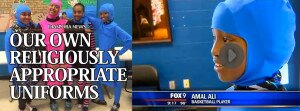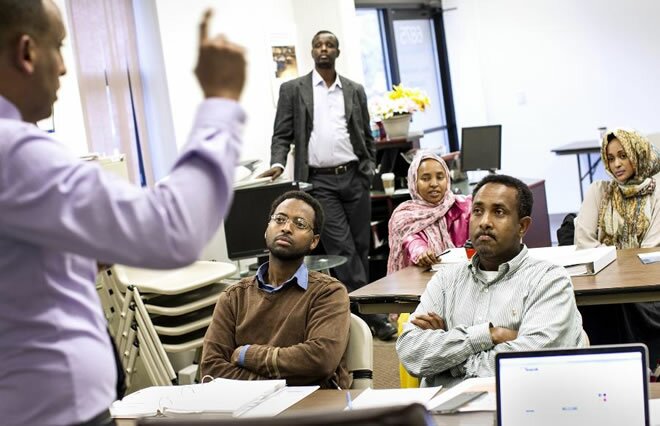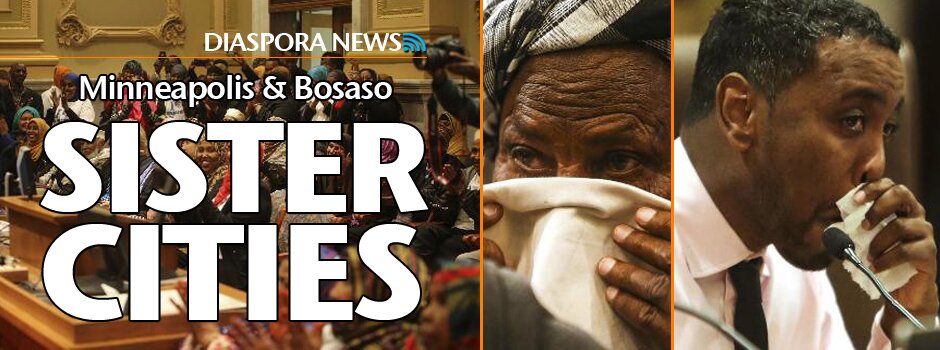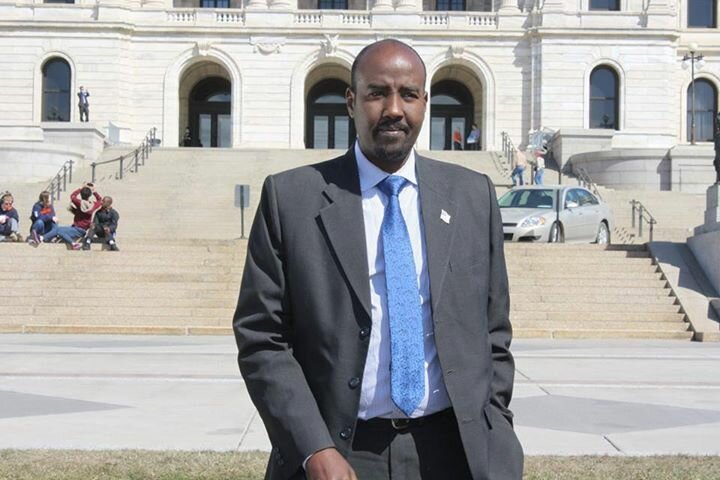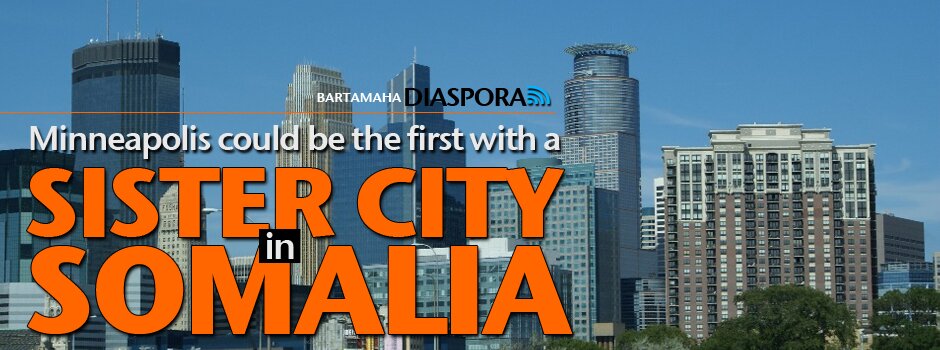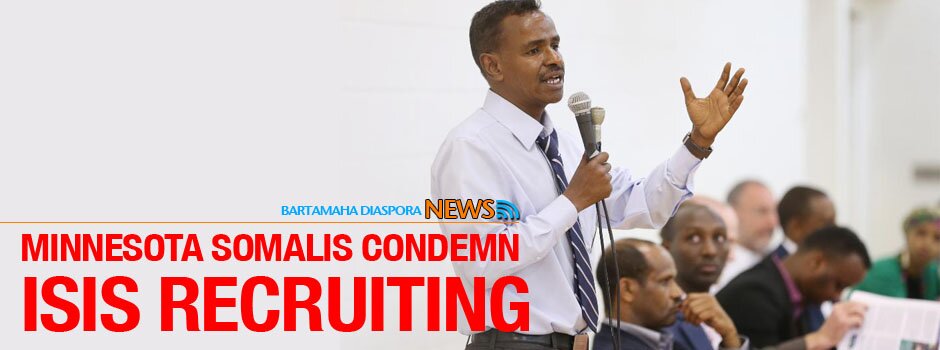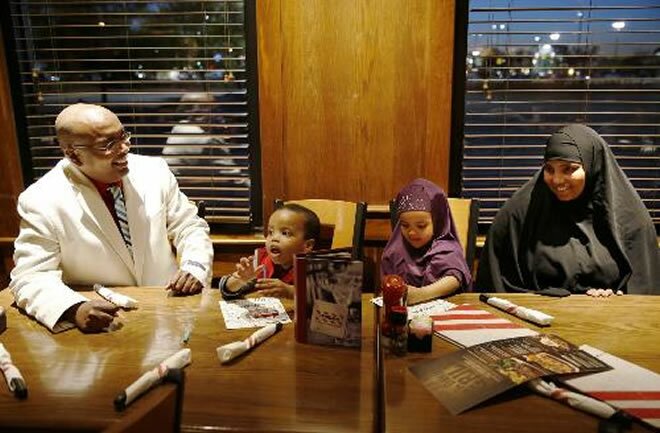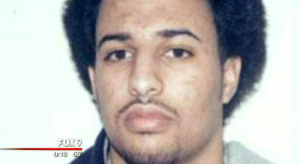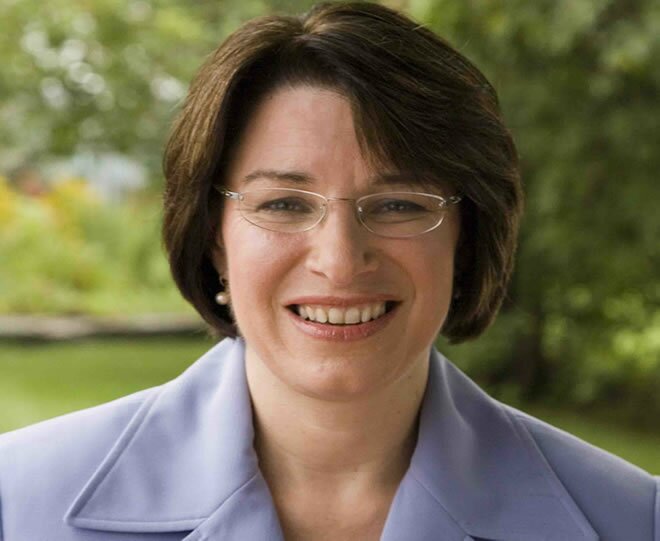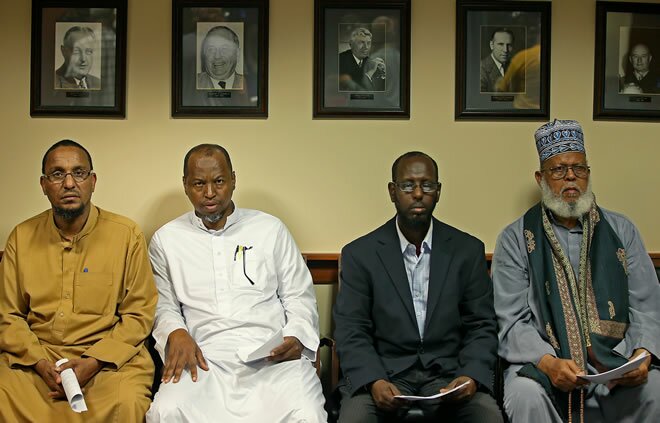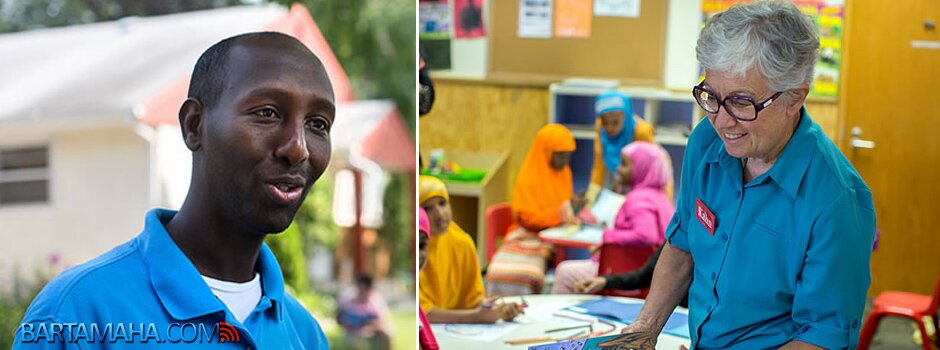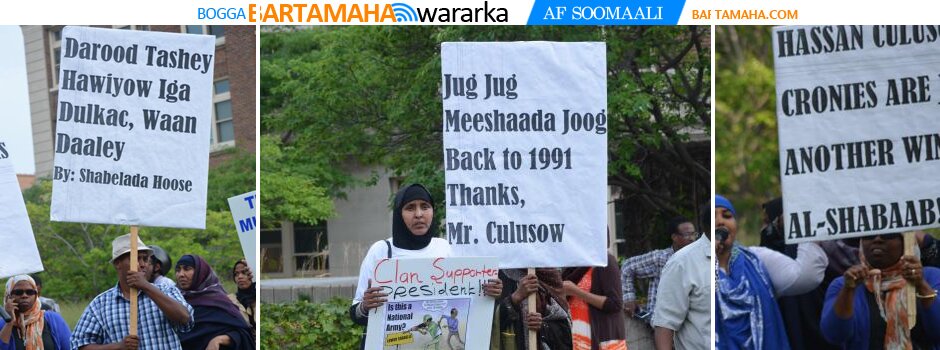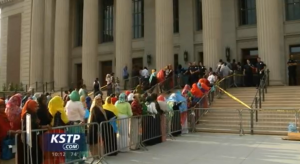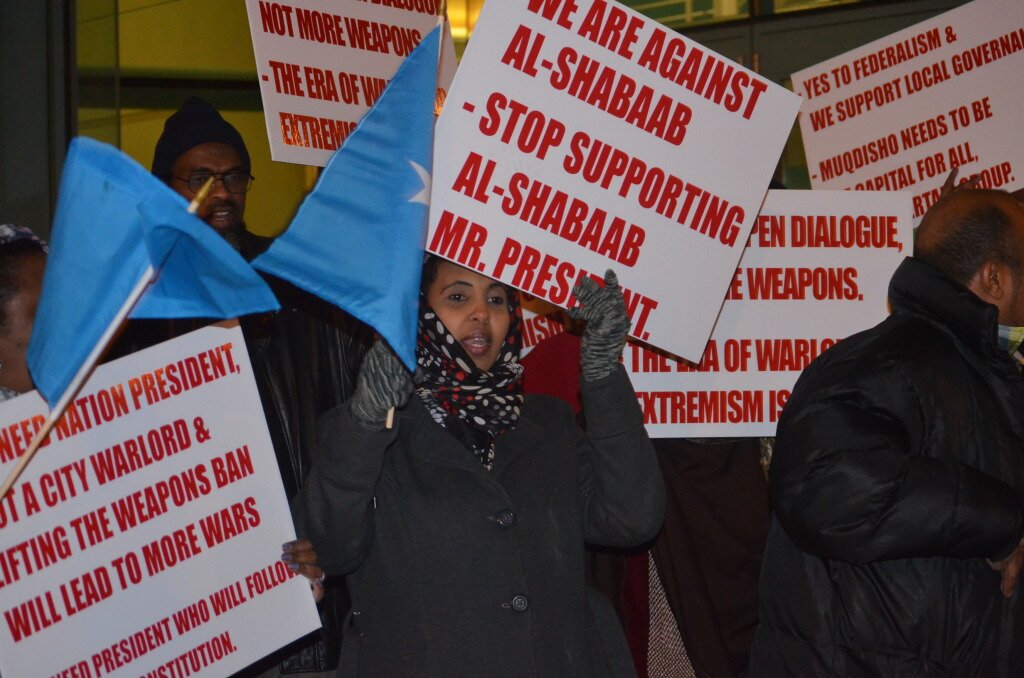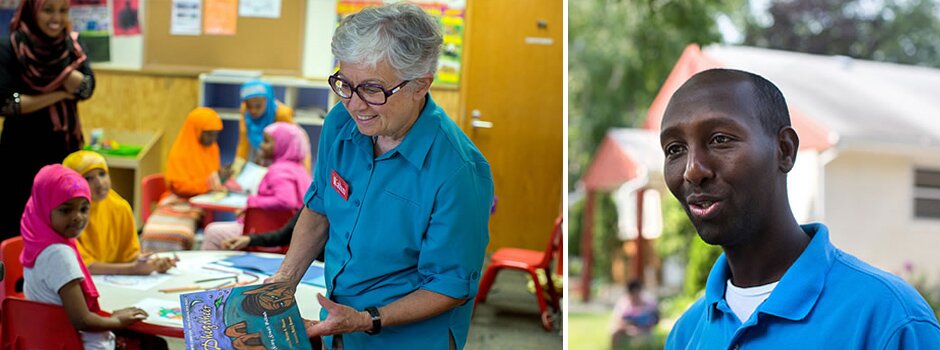St. Paul’s first Somali-born police officer is sworn in this week
Garaad Sahal waited to tell his mother that he’s becoming a police officer.
He worried about her reaction because where Sahal and his family are from, Somalia and Kenya, police officers are often feared. As Sahal becomes the St. Paul police department’s first Somali officer, he hopes to bridge the gap between his community and police.
“Seeing our family and our friends being helpless with law enforcement back home, I wanted to do something to help people — so they know it’s not the same as the way we went through back home,” said Sahal, who graduates from the police academy Thursday, Oct. 4.

Since the St. Paul police department’s origin nearly 160 years ago, immigrants have always wanted to be represented on the department
and new groups have joined the police force after they’ve settled in the community.
Eight of the people who will become the newest officers on Thursday speak a second language — Somali, Korean, Russian, Hmong and Spanish, said Cmdr. Mary Nash, who heads the training unit.
“One of the things we’ve always strived for is to try to mirror the community we serve,” said police Chief Thomas Smith. “It’s important for our citizens — they want to see people representing their own community or their own ethnic background. A successful department is one the community trusts.”
Now, including the 22 recruits about to graduate, almost 17 percent of St. Paul officers are minorities.
There are other common threads among the recruits who completed the department’s 16-week academy: many have military backgrounds, family roots in public safety, and experience working for St. Paul police or other departments.
Recruit Ryan Anderson, 31, has all of those things. He has been in the Minnesota Army National Guard for 14 years, is a staff sergeant who has been deployed three times, and recently was awarded the Bronze Star. His father is St. Paul police Cmdr. Eric Anderson. And he has been a St. Paul police parking enforcement officer for four years.
Anderson’s high military award was for his work as a convoy escort team leader in Iraq. Though he had no formal electrical training, Anderson identified a problem with new land-mine resistant vehicles, which they drove at night — they didn’t have enough lighting to find roadside bombs.
As a result, more lights were put on the vehicles, Anderson said. That move contributed to another National Guard unit finding and clearing a bomb, potentially saving lives, according to Anderson’s award, which noted other work as well.
Another recruit, Ashley Leopold, also was a St. Paul parking enforcement officer before she became a recruit; she is one of two women graduating Thursday. She comes from a public safety and hockey family.
Her father, Al Leopold, is a retired St. Paul firefighter, “so I grew up being around the public service stuff,” she said, and she has other relatives in police work.
Leopold, 25, played hockey at Stillwater Area High School and Bemidji State University. She’s coached girl’s hockey at Hill-Murray School, which she hopes to get back to when her probationary period ends at the police department; she still plays defense, but now in men’s recreational leagues. Leopold’s first cousin is Jordan Leopold, who plays professional hockey with the Buffalo Sabres, and her brother played college hockey.
Sahal also has experience with the St. Paul department. He was hired as a community liaison officer in December, and previously worked as a Mall of America security officer and Minneapolis police community service officer. Community liaison and parking enforcement officers are feeder programs for many who become officers in St. Paul.
Smith said he worked with the Somali community for a long time, even before he became chief, to get Somali people in the pipeline to becoming officers. It required building trust and getting people to go to school to become officers, Smith said.
With the new St. Paul graduates, there will be 594 sworn officers, of which 34 are Asian, 34 are black, 25 are Hispanic and six are American Indian, according to department figures.
Sahal, 32, was born in Mogadishu, Somalia. He and his family fled the civil war in 1994, moving to a refugee camp in Kenya. In 2001, Sahal came to Minnesota by himself for better educational opportunities. He lived with his aunt in Minneapolis for a short time.
Sahal became a U.S. citizen in 2011. “That was one of the best things I’ve accomplished since I came here,” he said. “It’s a new beginning for us.”
Sahal decided he wanted to become a police officer soon after coming to the United States, when he saw the differences between officers here and in Kenya and Somalia. In those countries, there is no central number to call for police.
“In order to get service from them, you’ve got to know certain people or you’ve got to know them,” Sahal said of officers in Somalia and Kenya. “If you know them, then they might give you good service. If you don’t know them, you might have to throw some money in it.”
Sahal waited to tell his mother about his career goal in Minnesota, but confided in his father. “I told him, ‘I really want to do this,’ ” Sahal said. “He understood.” His mother has always worried about him, including coming alone to America, and she still does, Sahal said.
Sahal’s aunt and friends will come to his graduation, and Sahal said he’ll send photos to his parents, who still live in Kenya.
Hindia Ali, youth leadership development coordinator at the Somali Action Alliance, said she and other community leaders will attend his graduation.
“It’s really important because there’s some folks that don’t speak the language and, even if they do speak English, it just helps to have someone they can talk to,” Ali said. “Somalis come from a place where there is a fear of law enforcement agencies.”
The Twin Cities has the largest number of Somalis outside of East Africa. More than 32,000 Somalis live in Minnesota, according to the U.S. Census Bureau.
__
Pioneer Press
Mara H. Gottfried can be reached at 651-228-5262. Follow her attwitter.com/MaraGottfried or twitter.com/ppUsualSuspects.
Comments
comments
 Calendar
Calendar









